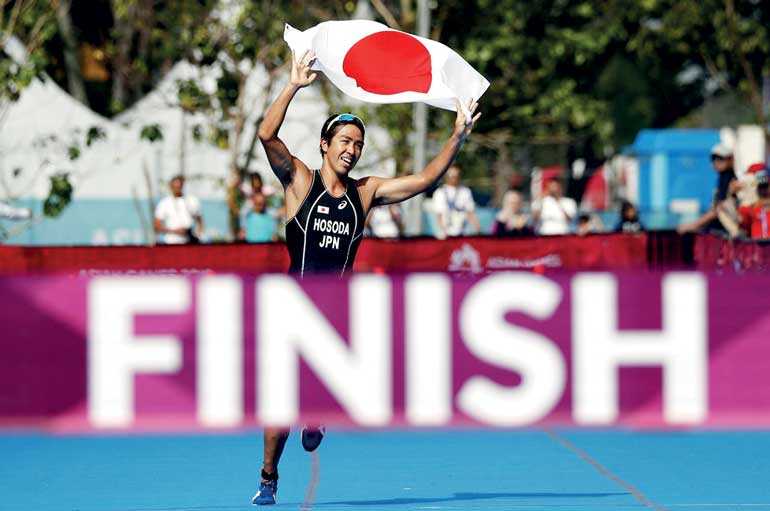Saturday Feb 21, 2026
Saturday Feb 21, 2026
Tuesday, 4 September 2018 00:00 - - {{hitsCtrl.values.hits}}

JAKARTA (Reuters): China quietly continued their domination of the region’s sporting arena, while 2020 Summer Olympics host Japan were buoyed by plenty of encouraging performances at the 18th Asian Games which ended in Indonesia on Sunday.
Since the 1982 edition of the Games in New Delhi, it has become somewhat of a quadrennial ritual for China to turn up at the continent’s premier multi-sports event and walk off with a lion’s share of the medals.
The Jakarta-Palembang Games followed that script, with China leading the way on 132 golds, although a largely inexperienced contingent bereft of weightlifters fell back slightly with 19 fewer victories than they managed at Incheon four years ago.
China claimed seven weightlifting golds in South Korea but is currently one of nine countries serving 12-month bans following multiple doping violations by their athletes.
If China lived up to expectations, Japan exceeded theirs by leapfrogging South Korea on the medals table to secure second place for the first time since the 1994 Hiroshima Games.
Their swimmers made a major contribution, with Games MVP Rikako Ikee contributing to six of their 19 golds in the pool, seven more than Japan managed in Incheon.
“Firstly, I have to say that our swimming team made a lot of effort,” delegation head Yasuhiro Yamashita told reporters after Japan secured 205 medals, 75 of them gold.
“They won 19 (gold) medals and that provided momentum to the entire Japanese team and created an environment where the athletes in various events could do their best in order to challenge their dreams.”
The lone blemish on their otherwise impressive campaign was the conduct of four basketball players, who were sent home in disgrace and subsequently slapped with one-year bans after they spent the night with women in a Jakarta hotel.
South Korea’s below-par haul of 49 gold medals, 30 fewer than in their home Games four years ago, will force them into some serious soul-searching ahead of the Tokyo Games.
The tally fell significantly short of their 65-gold target and exposed a lack of emerging talent able to replace Olympic champions such as swimmer Park Tae-hwan and badminton player Lee Yong-dae.
“We’ll humbly accept our results here and use that as a stepping stone,” Korean Sport and Olympic Committee head Lee Kee-heung lamented.
“We were unable to produce a new generation of star athletes and our pool of young athletes across all sports has become too shallow.”
Boost for Son
Their men’s soccer team did provide a major boost by defending their soccer title, however, with skipper Son Heung-min delighted to pick up a gold medal that earned the Tottenham Hotspur forward exemption from Korean military service.
The Korean contingent could also be forgiven for feeling short-changed in one discipline, after organisers slashed shooting events, one of their strong points, from 44 to a mere 20.
The hosts, meanwhile, milked their home advantage to surpass expectations with 31 golds, 14 from the Indonesian martial art of pencak silat alone, enjoying their best ever Games despite off-field rumblings over ticketing and traffic problems.
Enthused by the success of holding the biggest multi-sport event outside the Olympics, the world’s largest Muslim-majority country announced a surprise bid to host the 2032 Summer Games.
“With the experience we have in running the Asian Games, we are sure we can host an even bigger event,” President Joko Widodo said after his meeting with International Olympic Committee (IOC) chief Thomas Bach on Saturday.
The 57-year-old himself featured in a spectacular stunt during the Aug. 18 opening ceremony, when he was shown roaring into Jakarta’s main stadium on a powerful motorbike.
The subsequent two weeks of relentless action was not confined to medals events only.
Esports, which is set to become a full event at the next Games in Hangzhou, made a successful and significant Asiad debut as a demonstration sport.
Sports’ ability to forge peace and camaraderie was also on display in Indonesia as South and North Korea marched under the same flag, even fielding joint teams in six events across three sports.
The combined Korean team won four medals, including gold in one traditional boat race event.